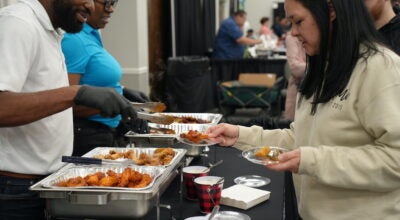What’s in your manger?
Published 4:53 pm Monday, December 12, 2011
By DR. FRED SELF / Veterinarian
This time of year we hear about shepherds, kings and jolly toy makers.
Just after Thanksgiving, several radio stations began playing music that reminds us of snowy rides in horse drawn carriages and partridges in pear trees.
Whether you are watching a flock, riding camels, driving deer or horses or raising fowl, this time of year can have severe consequences if you are not prepared.
Several issues with husbandry, or care of livestock, are particular to this time of year. While we prepare for the season, our livestock are dealing with very stressful day-to-day conditions. The three most common conditions that must be controlled are water source, proper nutrition and overcrowding.
Our state gets rain during this time of year. However, getting rain does not mean the water can be used by livestock. The water we provide is often limited. Either limited by our schedule or by the environmental temperature. Less water has to be consumed in the winter because of the lower temperature.
It is still important, however, that water buckets be checked regularly to ensure adequate quantity and quality. Water in buckets will freeze at the surface. Even though the bucket is full, the drinkable water below the ice cannot be reached. Daily water checks should be performed throughout the winter.
Nutrition can be hard to understand. It is not just a matter of having something to eat. It is equally important what there is to eat. Different foods contain different levels of key nutrients. Providing the correct combinations of foods is important. Another key factor for livestock is that some of the nutrients they get are byproducts from bacteria in their stomachs, not directly from the food they eat.
In order to supply enough energy to make up for the cold, more food or a higher energy food has to be fed.
Overcrowding often results from moving livestock into a smaller space so their care is made easier.
Even though it takes less time and energy to care for livestock in a smaller space, the resultant crowding can cause stress on members of the group. Both territorial and access to food issues can occur.
To prevent water, nutrition, and crowding problems plan ahead. Stockpile feed during the summer. Setup your facilities so a quick trip will allow for checking water and providing feed.
Better control of your livestock’s conditions will help make this a joyous season.
Dr. Fred Self is a veterinarian at Shelbiana Animal Clinic in Columbiana, along with Dr. Charles Thornburg. You can reach them at 669-7717.









